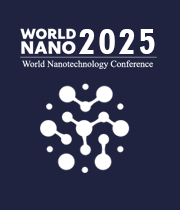Title : Enhancing UV stability of HaNPV with moringa-derived ZnO nanoparticles for sustainable agriculture
Abstract:
The nuclear polyhedrosis virus (HaNPV) serves as a crucial biocontrol agent in the management of Helicoverpa armigera, a significant pest that adversely affects a diverse array of agricultural crops. Despite its potential, the effectiveness of HaNPV in field applications is considerably hindered by its rapid inactivation due to exposure to ultraviolet (UV) light, which poses a serious limitation to its practical utility. This study explores an innovative approach to enhance HaNPV’s UV tolerance by incorporating biogenic zinc oxide nanoparticles (ZnONPs) synthesized from Moringa oleifera leaf extract. The ZnONPs exhibited a characteristic absorption peak at 368 nm, confirming successful synthesis. Nanoparticle Tracking Analysis (NTA) revealed an average particle size of 31 nm and a zeta potential of -19.3 mV, indicating the formulation’s stability.
The nano-enhanced HaNPV demonstrated significant UV protection, retaining 88.08% of its initial toxicity and preserving 77.83% of the polyhedral occlusion bodies (POBs) after the addition of 80 µl of ZnONPs per ml of HaNPV formulation, followed by 15 minutes of UV exposure. This eco-friendly nano-formulation holds substantial potential to boost HaNPV’s resilience against UV degradation, providing a sustainable strategy to enhance pest control efficacy in agricultural practices. The findings underscore the potential of nanotechnology in advancing biocontrol solutions and promoting sustainable agricultural methods.
Keywords- HaNPV, Zinc oxide nanoparticles (ZnONPs), UV stability, Biocontrol agent, Sustainable pest management


